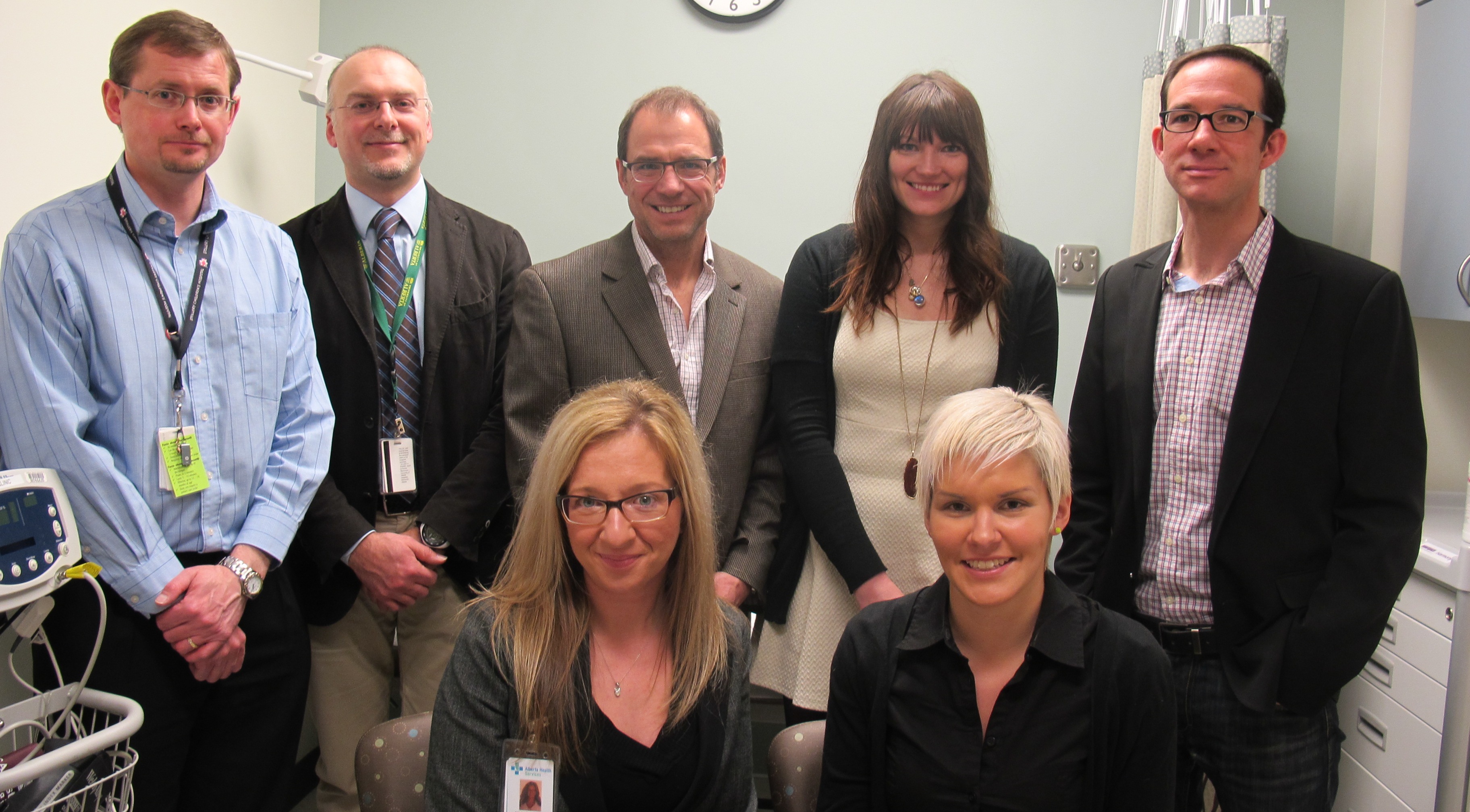
L-R (back row): Bruce Dick, Fabrizio Giuliani, Darrel Gregory with the MS Society, Camille Olechowski, and Bradley Kerr.
L-R (front row): Research assistant Michelle Verrier and Patrycia Rzechowka, who lives with MS.
A researcher and her colleague with the Faculty of Medicine & Dentistry recently published findings about how pain impairs cognitive function in multiple sclerosis (MS) lab models, and the general concepts she examined as a PhD candidate are now being used in a pilot study at the local MS clinic.
Camille Olechowski worked with PhD supervisor Bradley Kerr on the research paper, which was published in the peer-reviewed journal, Experimental Neurology, earlier this year. They found mice with heightened pain sensitivity had problems with object recognition, but when the mice were given medication to reverse the pain, the cognitive problems were also reversed. Pain and cognitive problems are two key concerns in MS, but this was one of the first research studies to officially link the two in a lab model study.
Olechowski then teamed up with renowned MS researcher Fabrizio Giuliani, and pain and anesthesiology researcher Bruce Dick, to launch a pilot study to look at the effects of pain on such quality of life measures as sleep disruption.
"We wanted to see if the basic science knowledge we gained in the lab could translate into helping people with MS," says Olechowski, who recently became a PhD. "We want to find out if what we saw in the lab models is the same in MS patients."
Dick added: "What Camille has done in the lab has had a domino effect and now her work is being used to further additional MS research. There are many factors associated with poorer cognitive function, such as sleep disruption and we want to find out how it all fits. And when patients' pain gets worse or plateaus, how does their quality of life change?"
Giuliani, who is also the Director of the MS clinic, said currently, physicians at the clinic don't measure quantity of pain, they simply use different medications to try to treat the issue. If one pain medication doesn't work, they try others. And pain is a common complaint from patients and a reality of the disease. Some can tolerate the pain, while others can't and need to go to the pain clinic for further help.
"As a clinician, if we can learn something from this study that will help patients, it would be good for everyone - the patients would benefit, as would their families, and doctors would benefit as well. This is something we want to do - to be a translational clinic, where we can translate findings from basic science to help patients."
Olechowski is a medical researcher with the Centre for Neuroscience, while Giuliani works in the Department of Medicine, the Department of Psychiatry and the Centre for Neuroscience. Dick is a researcher in the Department of Anesthesiology and Pain Medicine, the Department of Psychiatry, the Department of Pediatrics and the Centre for Neuroscience.